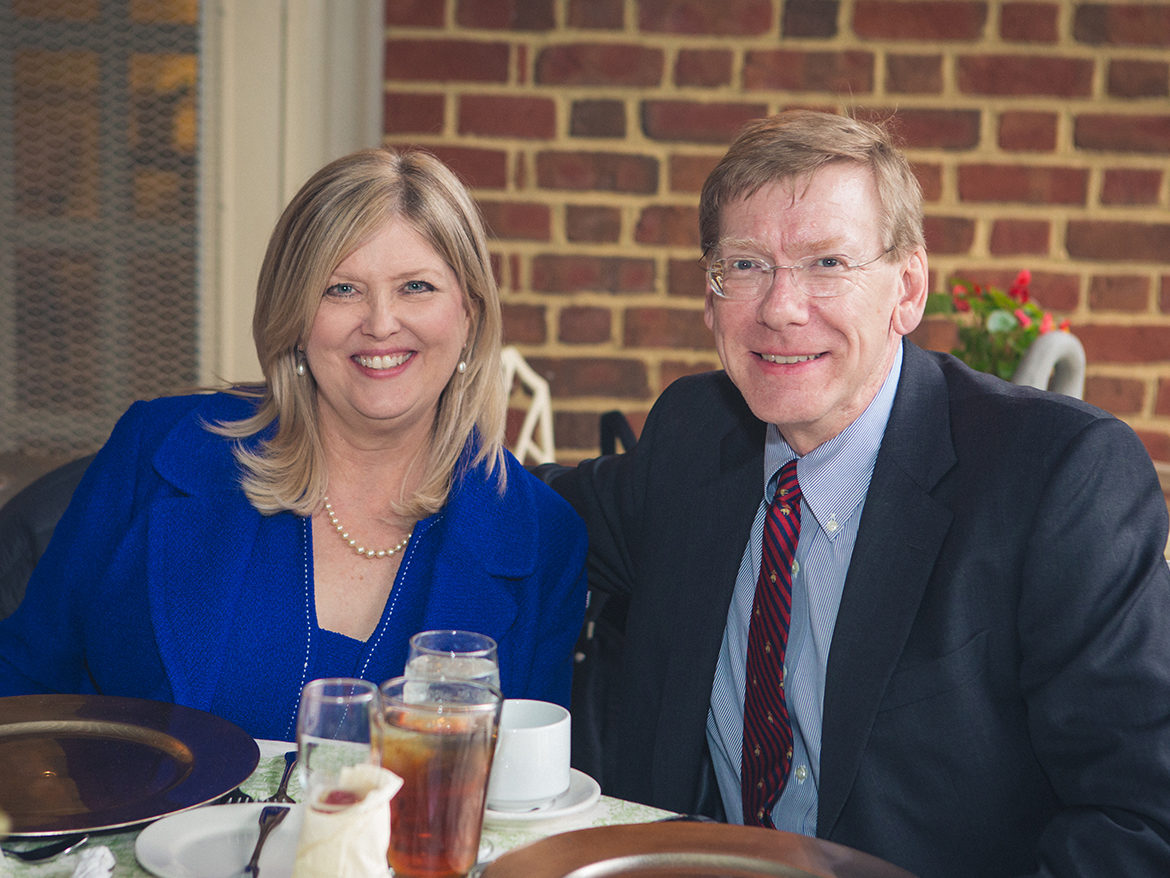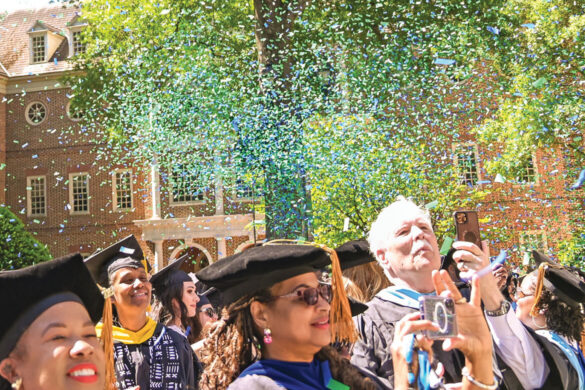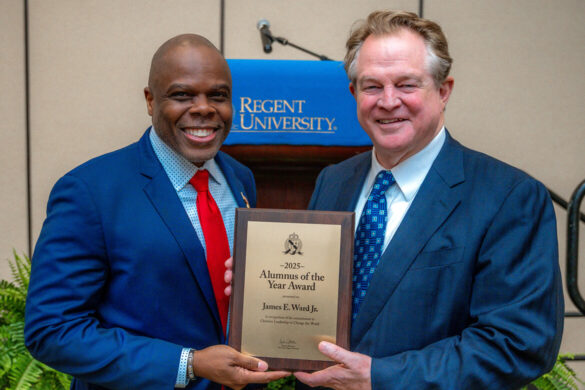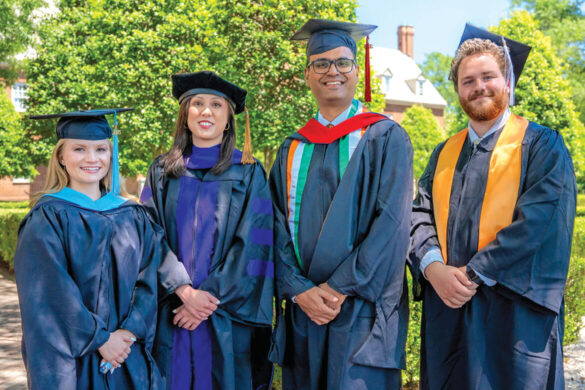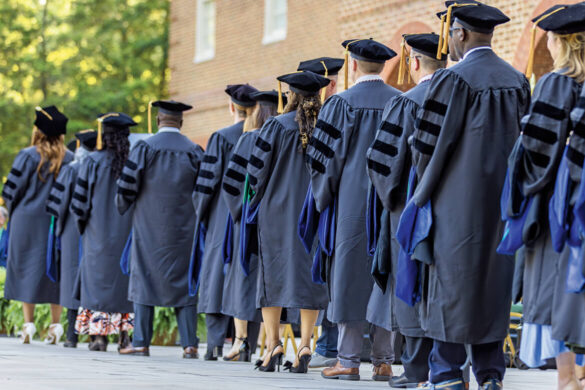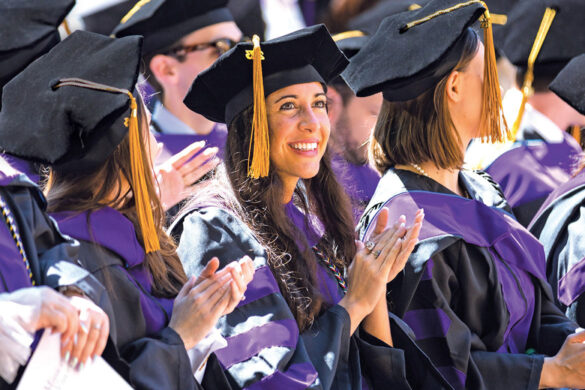On a quiet fall morning in 1977, Susan Brophy Bailey ’80 (Communication & the Arts) knelt down to pray for God’s direction in her life. “Unexpectedly,” Bailey explains, “the Lord spoke to me, saying, ‘Go to Virginia Beach.’” She adds that after “pondering that message in my heart” over the next week, her mother called and told her Pat Robertson was starting a graduate School of Communications. Bailey remembers that her heart beat rapidly, because now she knew why God had spoken those words to her.
Even before that word from the Lord, Bailey had considered continuing her education in the area of filmmaking, but she was reluctant to attend a secular graduate program: “Regent offered me an opportunity to study film in a godly setting where I would no longer be subjected to the questionable and immoral content I endured as an undergraduate student.”
Nearly a year after God spoke to her, she and 76 other students arrived at an office building in Chesapeake, Virginia, to begin classes at what she calls a “new, visionary university.” Recalling those first days of then-CBN University, Bailey says, “Everyone involved — students, faculty and administration — felt God’s call to pioneer an institution that would raise up leaders, people of influence, who could enter their chosen field and infuse godly values into their work life.”
She adds, “Like any immigrant or pioneer, this group of dedicated individuals paved the way and laid a foundation for the future of the university. As Scripture reminds us, ‘Now, faith is the substance of things hoped for, the evidence of things not seen’ (Heb. 11:1). While we all hoped to fulfill God’s purposes for our own lives, we simultaneously sensed a deeper call to establish the groundwork for those who would follow.”
As a graduate, Bailey has worked in the field of communication in various positions. At the Christian Broadcasting Network (CBN), she became a field reporter for The 700 Club, relating testimonies of God’s grace in people’s lives. Bailey says she felt privileged to share the gospel message through God’s work in other people’s lives.
As the producer of CBN’s radio show, “700 Club on the Line,” Bailey worked with hosts Ben Kinchlow and Dr. David Gyertson. Later, at Grove City College, she worked as the director of communications. She ended her career at the worldwide firm of Ketchum Public Relations. Among her numerous professional honors is the prestigious Silver Anvil Award for her work on the economic development program for the state of Pennsylvania during Governor Tom Ridge’s administration.
Having achieved her dreams, Bailey began looking to the future. Regent University had paved the way for every career opportunity God provided, so she felt it was time to give back. A family trust allowed Susan and her husband John to establish the Pioneer Scholarship Fund for the School of Communications & the Arts.
“We wanted to honor the pioneers who boldly came to CBN University,” she says. “We desired to dedicate the scholarship to Pat Robertson, along with the men and women students, administrators and faculty who ventured out — some risking careers — to come to an unknown, unaccredited university. Second, we established the scholarship for students exhibiting this pioneering spirit. Third, communication arts is often one of the least funded, yet most critical, of Christian endeavors.”
Bailey points out that God chose to relate His holy Word in the form of HIS-story. “Much of Jesus’ teaching came in the form of parables,” she explains. “Jesus Himself was the Word. Indeed, C.S. Lewis noted that of all his writings, he felt his stories carried far more influence than his theological arguments.”
Insisting that one has only to look at the degrading influences of the media and Hollywood to see how pervasive and influential these arenas have become in the world, Bailey believes that “our story,” which is really God’s story, is critical to reaching a lost world: “The Pioneer Scholarship tells the story of individuals who felt a call to change their world for Jesus. Once more, we have an opportunity to give to a future generation. Not by relaying the old foundation, but by laying a new one in the form of contributions to this and other scholarship funds.”
For additional information about how you can support Regent University’s many scholarship and grant programs, please visit regent.edu/give or call 800.335.4409.

